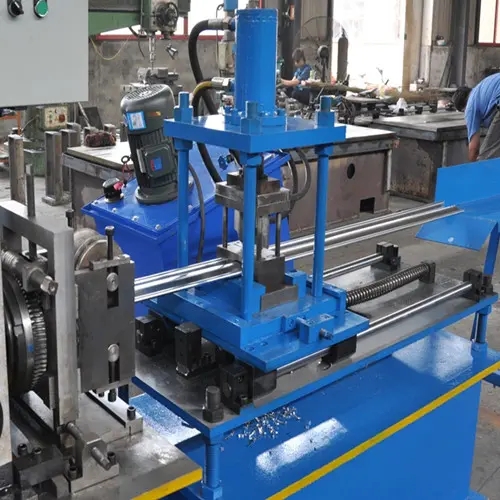
The Benefits and Applications of EPS Sandwich Panel Machines
In recent years, the construction industry has experienced a significant transformation, primarily driven by advances in technology and material science. One of the standout innovations in this sector is the EPS (Expanded Polystyrene) sandwich panel machine. These machines streamline the production of EPS sandwich panels, which are gaining traction for their outstanding thermal insulation properties and structural efficiency. This article delves into the benefits and applications of EPS sandwich panel machines, exploring why they are becoming a cornerstone in modern construction.
Understanding EPS Sandwich Panels
EPS sandwich panels are composed of three layers a core of expanded polystyrene sandwiched between two outer layers, typically made from steel or other composite materials. This configuration creates a lightweight, durable, and highly insulating product. The EPS core provides excellent thermal insulation, making these panels a popular choice for energy-efficient buildings. The outer layers offer structural integrity and resistance to various environmental conditions.
Advantages of EPS Sandwich Panel Machines
1. Efficient Production EPS sandwich panel machines automate the production process, allowing for rapid manufacturing of panels. This efficiency not only speeds up project timelines but also reduces labor costs and minimizes material waste. The ability to produce large quantities in a short time frame makes these machines an essential asset for construction companies looking to maintain competitive advantage.
2. Customization Modern EPS sandwich panel machines can be customized to produce panels of varying thicknesses, lengths, and widths, catering to diverse construction needs. This versatility ensures that builders can meet specific project requirements without compromising on quality.
3. Cost-Effectiveness The reduction in labor and material costs associated with the use of EPS sandwich panels significantly lowers overall construction expenses. Additionally, the superior insulation properties of these panels lead to decreased energy consumption in buildings, resulting in long-term savings for property owners.
4. Eco-Friendly The materials used in EPS sandwich panels are recyclable, and the energy efficiency they offer can contribute to lower carbon footprints for buildings. As sustainability becomes a key concern in construction, the ability of these panels to help achieve green building certifications makes them increasingly attractive.

5. Thermal and Acoustic Insulation The excellent insulating properties of EPS ensure that buildings remain at comfortable temperatures regardless of external weather conditions. Additionally, they offer good acoustic insulation, reducing noise pollution and contributing to a better quality of life for occupants.
Applications of EPS Sandwich Panels
1. Residential Buildings The lightweight nature and insulation properties of EPS sandwich panels make them an ideal choice for residential construction. They can be used in walls, roofs, and floors, contributing to energy-efficient homes that are both comfortable and cost-effective to heat and cool.
2. Commercial Structures In commercial construction, time is money. EPS sandwich panels allow for quick assembly and installation, which is essential for businesses looking to occupy spaces rapidly. Their durability and insulation capabilities make them suitable for warehouses, retail stores, and office buildings.
3. Industrial Facilities The construction of factories and industrial plants often requires materials that can withstand harsh environments. EPS sandwich panels provide the necessary strength and resistance to elements such as moisture and temperature fluctuations.
4. Cold Storage and Freezing Facilities The high thermal resistance of EPS makes it an excellent choice for cold storage and refrigerated buildings, where maintaining specific temperatures is crucial. The panels help in minimizing energy consumption, which is vital for operational efficiency.
5. Modular and Temporary Structures With the growing trend of modular construction, EPS sandwich panels offer an efficient solution for creating temporary structures, such as event venues or on-site offices. Their lightweight nature facilitates easy transport and installation.
Conclusion
The EPS sandwich panel machines represent a leap forward in building technology, offering significant advantages in efficiency, cost-effectiveness, and sustainability. As the demand for energy-efficient and eco-friendly buildings continues to rise, these machines will play a pivotal role in shaping the future of construction. By harnessing the benefits of EPS sandwich panels, builders can ensure that they meet the evolving needs of modern architecture and sustainable development. Whether for residential, commercial, or industrial applications, EPS sandwich panel machines are indeed a game-changer, paving the way for a smarter, greener future in construction.